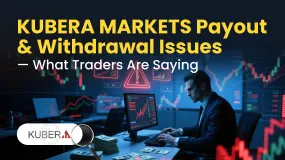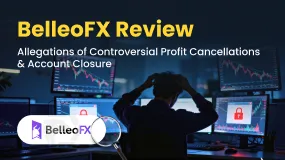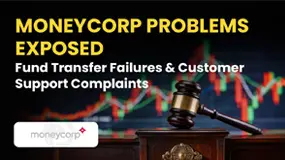Abstract:Australia’s financial sector is confronting another wave of increasingly sophisticated fraud schemes, uncovering more than $60 million in suspected scam attempts in the third quarter of 2025 alone. The findings come from BioCatch Trust Australia, a real-time fraud intelligence-sharing network launched in late 2024 that now covers over 85% of all banked Australians.

Australias financial sector is confronting another wave of increasingly sophisticated fraud schemes, uncovering more than $60 million in suspected scam attempts in the third quarter of 2025 alone. The findings come from BioCatch Trust Australia, a real-time fraud intelligence-sharing network launched in late 2024 that now covers over 85% of all banked Australians.
The network analysed more than 180 million payments worth over $330 billion between July and September 2025, revealing sharp growth in certain high-risk fraud categories despite broader improvements in banks' defensive capabilities.
Real-Time Data Gives Banks a New Edge
The BioCatch network allows banks to share behavioural, device, and risk-signalling data in real time—giving financial institutions the ability to assess a recipient accounts risk profile before funds are transferred.
According to BioCatch SVP of Emerging Solutions and Network, Tim Dalgleish, this capability is transforming scam detection:
“When the network makes that match, its signals now detect better than 70% of social engineering scam payments.”
The system can retrieve risk signals for the beneficiary account in more than 70% of transactions, offering banks unprecedented visibility into scam-likely transfers before they occur.
Scam Trends in 2025: Mixed Movements
According to BioCatchs 2025 Digital Banking Fraud Trends in Australia report, scam dynamics shifted unevenly across categories:
- Money-mule activity dropped 20% among participating banks
- Account takeover (ATO) attempts surged 47% year-on-year
- ATO attempts more than doubled in the last six months
- Phone scams and online purchase scams remain the most common entry points
- Social engineering remains the top driver behind fraudulent transactions
The spike in account takeovers highlights an alarming shift: fraudsters are increasingly targeting identity access points, not just payment flows.
Organized Crime Networks Behind Major Scam Activity
Intelligence analysts warn that much of the surge in digital fraud is not random—it is driven by highly structured criminal groups operating across Southeast Asia, including networks linked to Chinese organized crime syndicates.
Emerald Sage, principal intelligence advisor at OSINT Combine, said the operations behind these scams are far more sophisticated than the public realizes:
“These compounds are not fringe criminal enclaves but entrenched infrastructures that exploit governance gaps, regional passivity, and parallel financial systems.”
These networks operate large-scale scam centers—often under the guise of call centers or online “investment firms”—designed to carry out global fraud operations such as:
- Romance scams
- Payroll and job-offer scams (“Congratulations, youre hired!”)
- Pig-butchering investment schemes
- Payment redirection scams
- Large-scale credit card fraud
Authorities in Europe recently uncovered a €300 million global credit card network involving Cyprus-based shell firms, underscoring how transnational these criminal infrastructures have become.
A Growing Threat Landscape for 2025
Despite some positive developments—such as reduced mule activity—fraud risk in Australia remains elevated:
- Criminal networks are adopting AI-assisted scripting, deepfake audio, and behavioural spoofing techniques.
- Scammers increasingly target victims through employment offers, exploiting economic uncertainty.
- Cross-border operations allow fraud syndicates to move money quickly through “shadow banking” channels.
BioCatchs findings indicate the threat is evolving faster than most consumer protections, making coordinated intelligence sharing essential.
Conclusion: Progress Made, But Risks Rising
The launch of BioCatch Trust Australia marks a significant milestone in Australias fight against financial crime. With more than $60 million in scams intercepted and 70% of social engineering frauds detected at the point of payment, the system is proving its value.
However, the dramatic rise in account takeover attempts and the expanding role of Southeast Asian crime syndicates show that fraud is becoming more organized, more global, and more technologically advanced.










